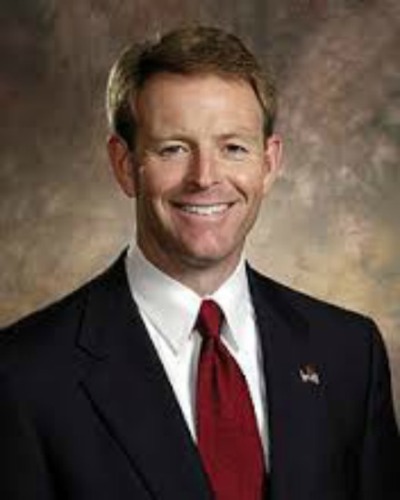Courting for Marriage: Left Tries to Woo SCOTUS

Thousands of years of human history cannot be overruled by three hours of debate before nine imperfect people. But today that is the best liberals can hope for in the race to upend nature's law -- and nature's God. Outside the U.S. Supreme Court, where the future of civilization was on trial, people from both sides of the marriage debate soaked in the sun while inside clouds gathered over the question that's shadowed America for the last 11 years: does the court have a right to force same-sex "marriage" on every state in the union?
Two years ago, these same justices argued no. It was wrong, Anthony Kennedy warned, for courts to "put a thumb on the scales and influence a state's decision as to how to shape its own marriage laws." Now, a vocal minority is asking these nine justices to put -- not just a thumb, but the body of America's highest court on the scales, toppling 240 years of self-governance. If they concede, burying the nation's democratic heritage under an avalanche of judicial activism, states' rights are forever at risk.
"If you prevail here, there will be no more debate," Chief Justice John Roberts told the other side's attorneys. "People feel very differently if they have a chance to vote on it" as opposed to having it forced on them. Justice Antonin Scalia chimed in as well, insisting that the key question here was who should decide the issue, pointing out that only 11 states had done so by a "vote of the people or the legislature."
It wasn't long before Justice Kennedy, who many see as the Court's only swing vote, pointed out that man-woman marriage has been "with us for a millennia." Why should the court impose a new definition and say "we know better?" he asked. Even liberal Justice Stephen Breyer shared his concern: "This has been the law for thousands of years. Suddenly, you want nine people outside the ballot box to require states that don't want to change?" At least three justices brought up the slippery slope of inventing a right to marry, especially since it paves the way to legalized polygamy, incest, and -- as we've already seen -- faith-based discrimination.
"Would religious schools in the future be required to provide housing for same-sex couples?" Roberts asked. States could decide that however they see fit, said the plaintiff's attorney. That's impossible, Roberts said, if it's a federal matter. Could tax exemptions be at stake? "I don't deny that," admitted the plaintiff's attorney. "It is going to be an issue." Or what about ministers who don't want to marry homosexuals, Scalia demanded. If it's suddenly a matter of constitutional law, "how can you allow exemptions?" The bottom line, both sides agreed, is that this would have a profound impact (and not a positive one) on religious liberty. At its core, the Chief Justice made clear to the Left's attorneys, "You're not seeking to join the institution," he told the attorney. "You're seeking to change what the institution is."
As I said earlier today to hundreds of people gathered at the steps of the Supreme Court, these justices can declare same-sex "marriage" a legal right in the eyes of government, but judges cannot make it moral right. The Court can rule, but they cannot prevail in changing marriage. For 11 years, homosexual activists have hidden behind the black robes of the court, trying to force their will on America before people wake up to the devastation.
And waking up, they are -- to lost homes, businesses, jobs, and speech, persecution, and shattered childhoods.Regardless, FRC's Cathy Ruse wrote in USA Today, "The people have always had a stake, a vote, a voice. There is always tomorrow and another chance to persuade your elected officials or fellow citizens of the rightness of your cause... Yet increasingly courts are taking away the power of the people to participate in this debate. Five members of the Supreme Court could take the issue out of the hands of the people altogether and mandate that marriage be redefined in all 50 states. It is difficult not to think of Roe v. Wade," she went on. "At the time of Roe, states were beginning to loosen limits on abortion. Not all of them would, to be sure, but the momentum was on the side of the abortion lobby. Then the Supreme Court took the issue out of the hands of the people, declared one side the winner, and established a policy of virtually unlimited abortion nationwide. And the New York Times declared the contentious issue settled. Of course there is hardly a less-settled issue in public life today, four decades later."
Today, there is no broad social consensus, and no global consensus, that society would be better served by redefining marriage to include same-sex couples. As more Americans see and feel the erosion of religious liberty, of parental rights, of children's innocence, and of conscience rights, their opinions will no longer be swayed by emotions and popular opinion -- but by the reality of the fundamental harm that same-sex "marriage" poses to society.
As for this case, plenty of people are making predictions about how the Supreme Court will decide it. FRC's Peter Sprigg, who joined me at the Supreme Court, told the crowd, "I will make only one prediction, but it's one of which I am certain. After this Court rules -- just as before -- marriages between one man and one woman will continue to be uniquely important to the future and health of society. The only question is whether the Court will permit states to recognize that truth, or demand that they deny it." Either way, we will not let a Court's definition of marriage define us. For, "There is only one Lawgiver and Judge, the one who is able to save and destroy." (James 4:12)





















